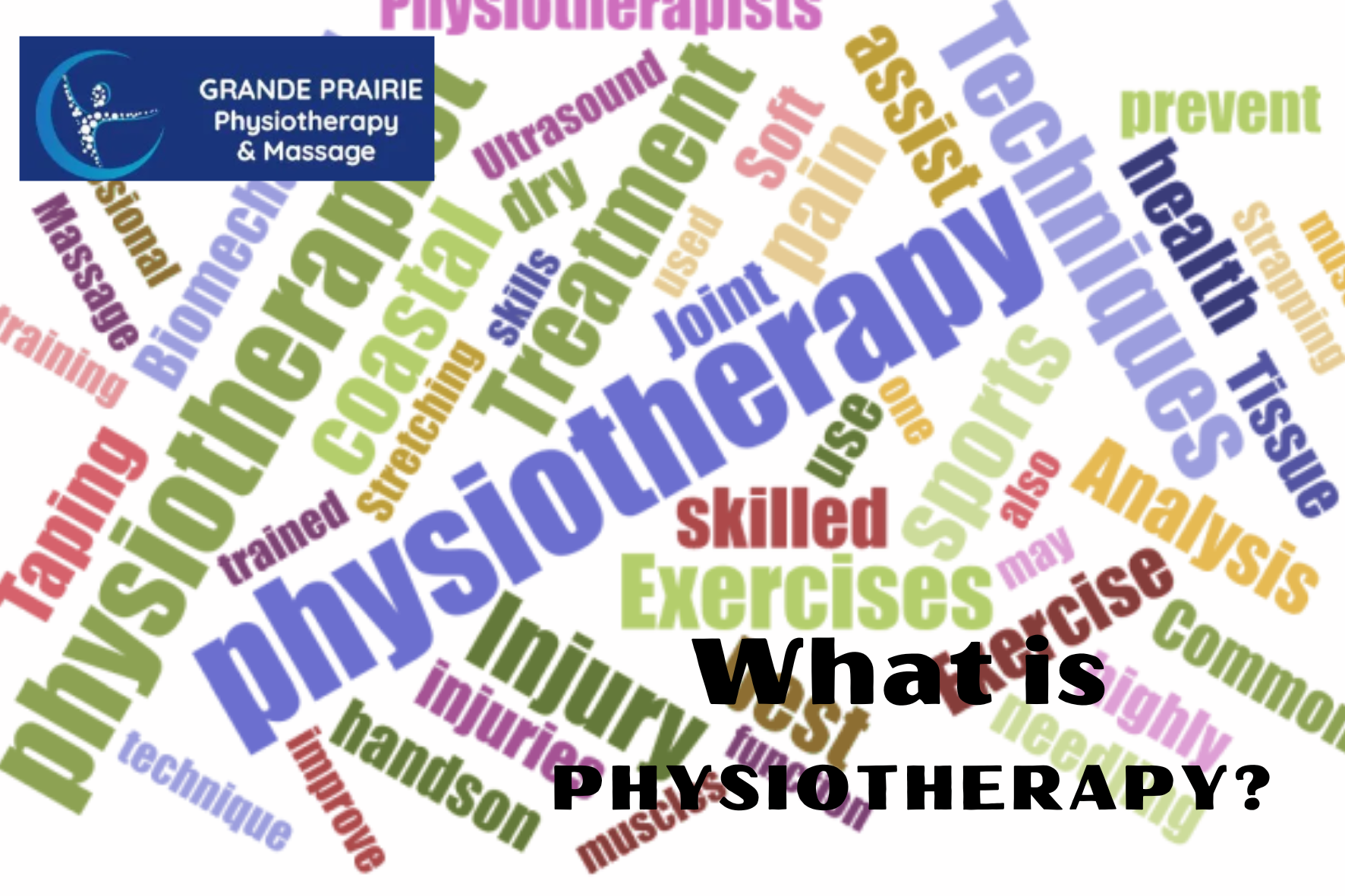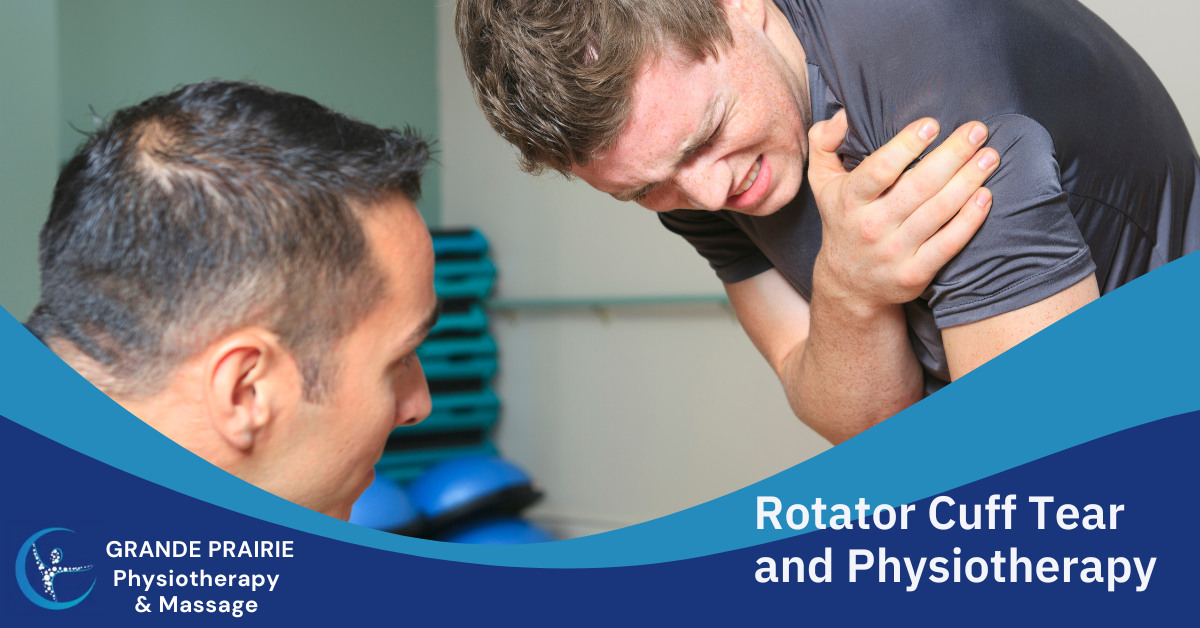What Is Physiotherapy Treatment
Physiotherapy treatment is a form of rehabilitation that helps people with physical impairments to regain movement and function. Physiotherapists use a variety of methods, including exercises, manual therapy, and electrical stimulation, to help their patients improve their quality of life. If you are considering physiotherapy treatment for yourself or someone you know, this post will give you an overview of what to expect. Keep reading to learn more!
About Physical Therapy
If you have never been through physical therapy before, you may be wondering what it is all about. Physiotherapy treatment aims to maintain, rehabilitate, and improve physical function after an injury or disease. It can also help people manage chronic conditions.
The goal is not solely focused on curing the patient's illness or injury but also works to make them feel better and more comfortable in their daily lives. Physiotherapy treatment plans are tailored to the individual and include exercises, manual therapy, education, and advice.
Physiotherapy is often recommended for people who have suffered an illness or injury that has left them with reduced movement or mobility. This can include back pain, neck pain, joint pain, osteoarthritis, rheumatoid arthritis, a broken bone, or a sports injury. It can also help people manage chronic conditions like diabetes and heart disease.
Physiotherapy is offered by physiotherapists. These professionals are trained to assess, diagnose and treat injuries and health conditions through physical intervention. In the US, physiotherapists are required to be licensed.
It is important to note that physiotherapy treatment should not be confused with a massage or sports therapy. It's also different from medical treatments, such as surgery or medication.
What Is a Physiotherapist's Expertise?
Physiotherapists have a range of skills and knowledge to treat patients with various conditions. They are experts in movement and function to help people regain movement and strength after an injury or illness. Physiotherapists also have knowledge of anatomy and physiology, which allows them to understand how the body works and how it responds to treatments.
What Can You Expect from Physiotherapy Treatment?
Physiotherapists aim to form a strong relationship with their patients to understand their needs and provide support throughout their recovery process. The first step is typically an assessment, where the physiotherapist will observe your movement and ask about your symptoms and medical history.
The physiotherapist will create a treatment plan tailored to your needs based on the assessment. This may include a combination of exercises, manual therapy, electrical stimulation, and education. Treatment plans are often flexible and adapted as the patient's condition changes.
The physiotherapist will provide instructions for the exercises and will monitor your progress. They may also offer advice on lifestyle changes that can help you manage your condition. The physiotherapist can refer you to other health professionals for further treatment if needed.
Physiotherapy is a safe and effective form of rehabilitation that can help people with a variety of conditions regain movement and function. If you are considering physiotherapy treatment, be sure to discuss your needs with your doctor or physiotherapist. They can help you find the right treatment plan for you.
Different Types of Physiotherapy Treatment
There are many different types of physiotherapy treatment plans. They can generally be classified into one of three categories: remedial exercises, functional exercises, and manual therapy.
Remedial Exercises
Remedial exercises aim to increase strength and mobility in the muscles and joints. They are often prescribed after an injury or illness to help the patient regain movement and function. The exercises may be done at home or in a physiotherapy clinic.
Functional Exercises
Functional exercises are designed to help patients return to their normal activities. This type of exercise might include walking, climbing stairs, or carrying groceries. The exercises are usually done in a clinic with the physiotherapist's help.
Manual Therapy
Manual therapy is a type of massage used to treat injuries and conditions. It involves the therapist using their hands to manipulate the muscles and joints. This can help to improve movement and reduce pain. Manual therapy includes massage, stretching, and movement exercises.
People undergoing physiotherapy treatment may be advised on how to improve their overall health and fitness levels. This can include information about nutrition, sleep patterns, exercise, relaxation techniques, hydration, and maintaining a balanced lifestyle.
Conditions Treated with Physiotherapy
Physiotherapy is beneficial for a wide range of conditions. It can assist with recovery after an injury or illness and help people maintain good health and fitness levels. Some examples of common conditions that may be treated with physiotherapy include:
Arthritis- Post-operative rehabilitation
- Sports injuries
- Fractures and broken bones
- Dislocations
- Back pain
- Neck pain
- TMJ dysfunction
- Carpal tunnel syndrome
- Endometriosis
Physiotherapy can also help pregnant women prepare for labor and delivery. If you are experiencing any pain or mobility issues, it is essential to speak to your doctor or physiotherapist. They can help you find the right treatment plan for you.
The Benefits of Physiotherapy Treatment
There are many benefits of physiotherapy treatment. Some of the key benefits include:
Improved strength and mobility
After an injury or illness, the muscles and joints can become weak and stiff. Physiotherapy can help to improve strength and flexibility in these areas. This enables the patient to return to normal movement patterns during daily activities.
Reduced pain
Physiotherapy treatment can assist with managing pain associated with a variety of conditions and injuries. The rehab exercises may include stretching and range of motion activities to reduce discomfort and improve overall mobility. Pain is often a symptom of injury or illness. By helping the patient regain movement and function, physiotherapy treatment can help to relieve pain.
Increased flexibility
Treatment can help increase the range of motion in the muscles and joints. This enables the patient to perform normal activities more quickly, without pain or discomfort. This is particularly helpful if you have arthritis or another condition that causes stiffness in the joints.
More energy
By helping to relieve symptoms caused by illness or injury, physiotherapy treatment can also improve overall energy levels. Symptoms such as fatigue are common following an injury or surgery. Improved strength, mobility, and pain relief can help to give the patient more energy to perform daily tasks.
Improved sleep
Poor sleep is often a side effect of illness or injury. Physiotherapy treatment can help to improve sleep patterns by relieving pain and discomfort. This can help the patient feel more rested and refreshed during the day.
Better mood
A positive mood is beneficial for overall health and wellbeing. When you feel good, you are more likely to take care of yourself and make positive choices for your health. Physiotherapy treatment can help improve the physical symptoms associated with illness or injury and the emotional symptoms. This can lead to a better overall quality of life.
Maintaining good health
Patients can learn valuable information about exercise, diet, relaxation techniques, hydration, and other factors that impact their overall health. These elements can be essential for preventing future injuries or illnesses.
Increased muscle strength
One major benefit of physiotherapy treatment is that it can help to increase muscle strength. This is important for preventing future injuries and improving overall mobility.
Faster healing time
Recovering from illness or injury can be a slow and frustrating process. Many doctors refer their patients for physiotherapy treatment to speed up the healing process. The patient may recover more quickly by starting treatment early, with less pain and discomfort.
Reduced risk of injury
If you have a chronic illness or injury, there is a greater chance of re-injuring yourself. Physiotherapy treatment can help to strengthen the muscles and increase flexibility to reduce the risk of future injuries.
Improved quality of life
After an injury or illness, it is common for patients to become frustrated and depressed. Physiotherapy can help to improve the overall quality of life by improving symptoms such as pain and reducing fatigue. This can lead to a greater sense of purpose and enjoyment in life.
Physiotherapy treatment is a beneficial approach for managing various health conditions and injuries. Treatment can improve flexibility, energy levels, sleep patterns, mood, and overall quality of life. Treatment also helps to reduce pain and promote healing. With the help of a physiotherapist, most patients make a full recovery and are able to return to their normal activities. Physiotherapy treatment is important for maintaining good health and preventing future injuries. If you have a chronic illness or injury, it is vital to seek treatment from a qualified physiotherapist.
Physiotherapy Treatment Options
There are many options in physiotherapy treatment. Some of the main techniques used include massage, exercise therapy, acupuncture, electrical stimulation, and more. Each method is very effective in the treatment of a variety of conditions.
Massage therapy is one of the oldest and most popular forms of physiotherapy treatment. Massage can help to improve blood circulation, reduce stiffness, and relieve pain. It is also a great way to relax and de-stress.
Exercise therapy is another prevalent form of physiotherapy treatment. Exercises can be tailored to the needs of each patient. They can help to improve strength, balance, and flexibility. This will help the patient to maintain good health and prevent future injuries. Exercise is also great for promoting overall wellness.
An electrotherapy is a common form of physiotherapy treatment that uses electrical currents to relieve pain. It has been used effectively with many conditions, including arthritis, tendonitis, and back pain.
Acupuncture is one of the more unique forms of physiotherapy treatment. This age-old technique has been used for centuries in traditional Chinese medicine. Acupuncture uses needles to activate the body's healing abilities to relieve pain and improve mobility.
There are many different options in physiotherapy treatment. Each technique has been found to be very effective in the treatment of a variety of conditions. It is important to seek treatment from a qualified physiotherapist to benefit from physiotherapy.
How Long Does Physiotherapy Treatment Last?
A course of physiotherapy treatment will usually last a few weeks rather than a few days. It can take several sessions to see significant results and improve function. Many people receiving physiotherapy treatment have an individual program designed for them that includes home exercises or activities they can perform independently. Once the condition has been improved with physiotherapy, patients are usually taught self-management techniques to maintain their improved function.
Physiotherapy treatment is beneficial for most conditions and injuries. Most patients receiving physiotherapy will see significant results after a few weeks of treatment. If you have an injury or illness that requires ongoing care, it is vital to seek treatment from a qualified
physiotherapist in Grande Prairie, AB.
Disclaimer:
The information in this article is intended to be used for informational purposes only. It is not intended to serve as medical advice and should not be used in place of the consultation or advice of your physician or other healthcare providers. The best way to get good results with any treatment or diet regimen is by consulting with your health care professional. Always consult with your doctor before making any changes to your diet or exercise routine.
Hopefully, this article has given you a better understanding of physiotherapy treatment and how it can help you maintain good health and prevent future injuries. If you have any further questions, please consult with your physician or other healthcare providers. Thanks for reading!
Physiotherapy Grande Prairie
Are you in pain? Let Grande Prairie Physiotherapy & Massage help. We're a team of highly trained physiotherapists and massage therapists who are committed to helping people get back on their feet after an injury or illness. Whether it's a chronic pain, post-surgery recovery, or just feeling out of shape, we can help! Our clinic is conveniently located in downtown Grande Prairie with free parking available right outside the door.
You don't have to live with pain anymore – let us help you feel better today! Book your appointment online now by clicking here. Or give us a call at
(780) 357-0095 if you have any questions about our services or would like more information before booking an appointment. We look forward to seeing you soon!
New Title











